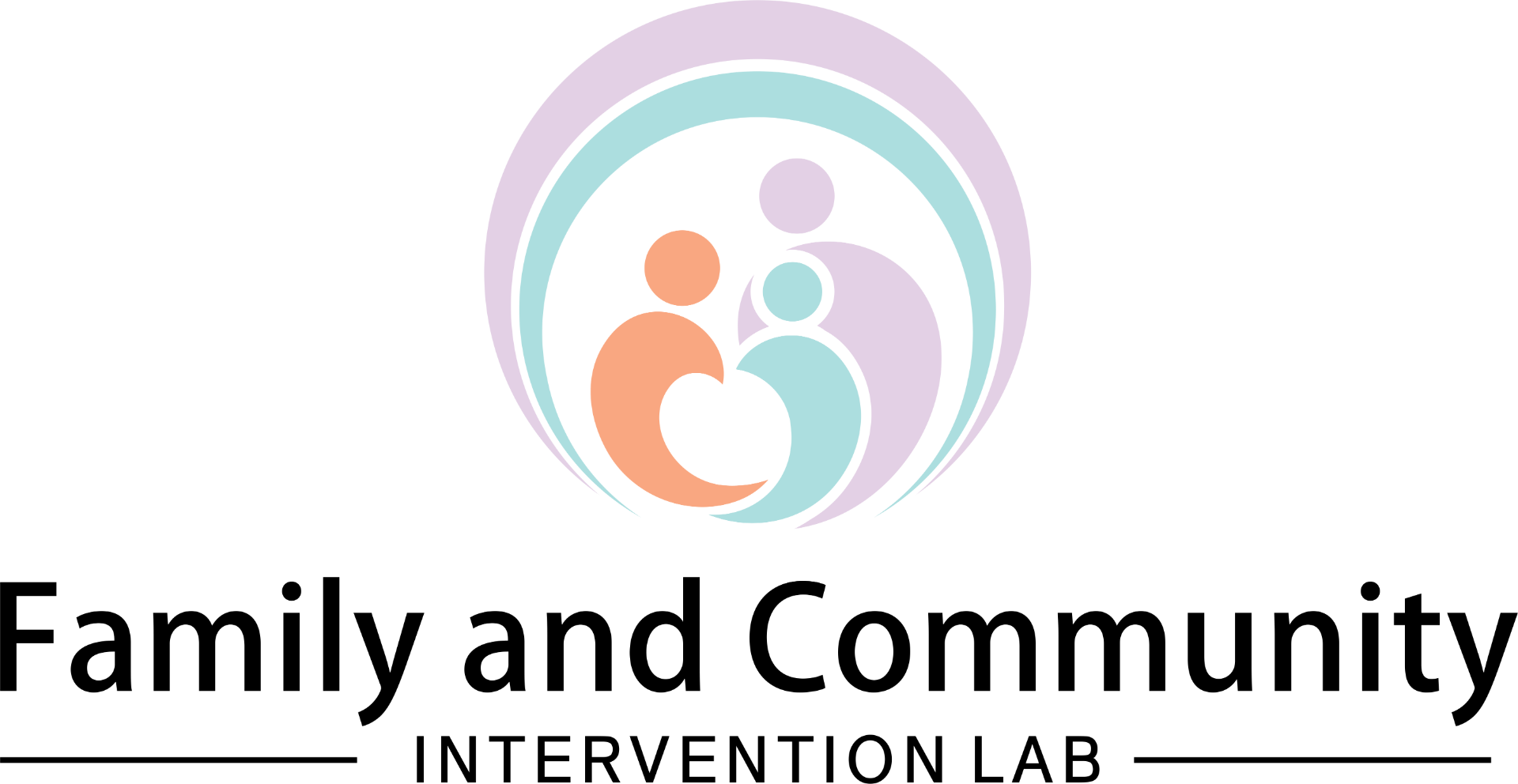Hello Parents and Caregivers,
Welcome to the Family and Community Intervention (FCI) Lab website!
In the FCI Lab, we are focused on providing services for families with children who have behavioral problems, such as throwing tantrums, not listening to directions, hitting, kicking, and breaking things. We provide Parent-Child Interaction Therapy (PCIT), an evidence-based treatment for children with behavioral problems.
This lab is under the direction of Dr. Lauren Quetsch, a faculty member in the Department of Psychological Science at the University of Arkansas.
DIVERSITY IN THE FCI LAB
We are committed to fostering a climate that advances diversity, inclusivity, respect, and social justice, in line with the values and commitments of the Psychology Department (https://fulbright.uark.edu/departments/psychological-science/diversity/), and larger university (https://diversity.uark.edu/).
The FCI lab team is focused on promoting equality. We celebrate multiple approaches and points of view and are committed to having a team that reflects the communities we serve.
Please click HERE if you are looking for culturally responsive local and national resources for autistic individuals and their families.
CORONAVIRUS / COVID-19
We are now welcoming clients in our clinic, therapeutic treatments are provided in-person and offered via telehealth (a video-conferencing system) if interested. If you would like to schedule an appointment, join a study, or would just like more information, please contact us at the following email: fcilab@uark.edu.
What is PCIT?
One of the common phrases we have heard is
“I love my child, but I don’t like my child because of the way they act.”
If you have had this thought, you are not alone. Many children engage in these behaviors.
If you feel overwhelmed by your child’s behaviors, find yourself getting frustrated, or even get embarrassed by your child’s behavior in public, PCIT has been shown by research to be an effective way to increase warmth and positive behavior, and decrease problem behaviors in children.



PCIT is unique from other treatments in that we use one-on-one play therapy to teach parents and caregivers the skills needed to listen and bond with their child. In the FCI Lab, our goal is to help strengthen the relationship between you and your child, all while equipping you with the techniques and strategies needed to reduce behavior problems on your own. PCIT is done through ‘coaching’ sessions, in which a therapist guides the parent through interactions with the child using in-the-moment feedback via a “bug-in-the-ear” Bluetooth device. Throughout the session the therapist remains in a different room, observing you and your child through a one-way glass in order to encourage positive alone time with your child. The therapist will watch and assess parent-child interactions and instruct the parent on how to respond to their child in order to foster a positive relationship and increase favorable reactions and behaviors.
Parent-Child Interaction Therapy has two treatment phases;
The first phase, called Child-Directed Interaction, focuses on creating a warm and positive relationship between you and your child. This bond is developed by learning and applying specific skills, such as praise, in interactions with your child. These strategies are proven to help your child feel calm and heard, and works to increase their self-esteem and focus, further encouraging a secure and positive relationship.
Parents can expect the following as outcomes of the first phase;
- Increases in attention span, self-esteem, and pro-social behaviors
- Decreases in tantrums, negative attention-seeking behaviors
- Decrease in parental frustration


The second phase is called Parent-Directed Interaction, and is focused on helping you, the parent, learn and apply the skills needed to manage your child’s problematic behaviors. In this phase, the parent will master specific strategies and techniques that help your child accept your limits, comply with your directions, respect the rules, and demonstrate appropriate behavior in public settings.


Following the second phase, parents should see;
- Increase in their child’s compliance, respect, and improved behavior in both public and at home
- Decrease in aggressive and destructive behaviors, and defiance
- Increase in parental calmness and confidence when disciplining their child
Treatment for families of autistic youth.
We have recently expanded and adapted our research to help improve relationships, and reduce behavioral problems, in families that have autistic children. We also provide diagnostic evaluations for children, adolescents, and adults who are interested in getting evaluated for autism spectrum disorder.
Where are treatment services provided?
The Family and Community Intervention Lab is located in Memorial Hall on the University of Arkansas campus, but treatment services are provided inside the Department’s Psychological Clinic, also located in Memorial Hall. Please call the Psychological Clinic to schedule an intake appointment. To learn more about our procedures at the clinic, please visit our clinic website.
Psychological Clinic Contact Information:
Phone: (479)-575-4258
Website: https://fulbright.uark.edu/departments/psychological-science/psychological-clinic/index.php
Internet-based Telepsychology Services
Some families might experience significant barriers that interfere with attending regular appointments in our clinic. To help improve access to our services, we offer telepsychology therapy over a secure video-conferencing system. PCIT, among other treatments, can be completed over telepsychology. To learn more about our services, please call the Psychological Clinic.
Future Research
As a lab of psychological science, we conduct research that informs PCIT delivery and quality services for autistic youth. If you are interested in participating in our studies, please email us at fcilab@uark.edu. Your message will be directed to Dr. Lauren Quetsch, and her research team.
Interested in contacting the FCI?
FCI Lab
Email: fcilab@uark.edu
Phone Number: (479) 575-2330




